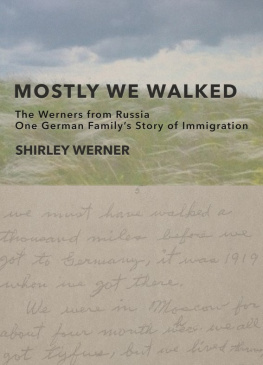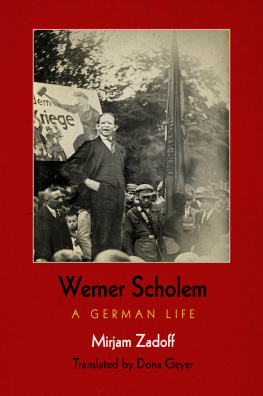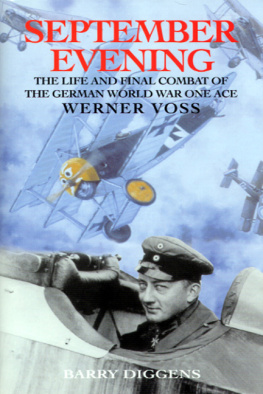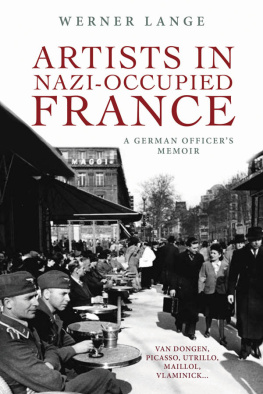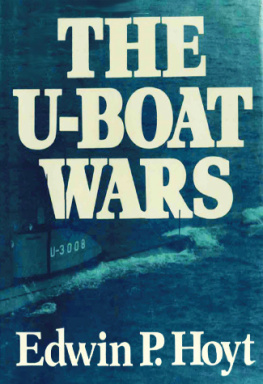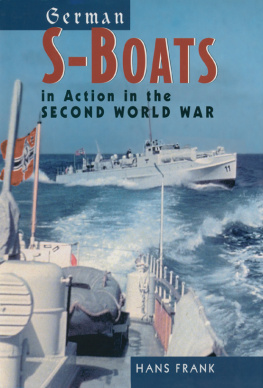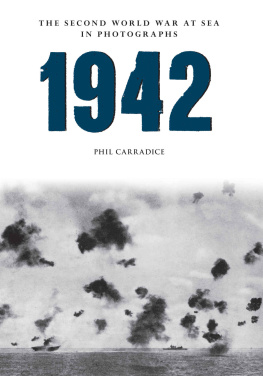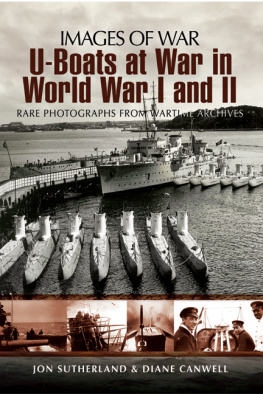ON OCTOBER 27, U-557 sailed into Lorient harbor. A gay crowd awaited us. This time, however, the girls from the etablissements were not among the well-wishers ; as we learned later, the naval complex had been fenced off against unauthorized personnel. But after our usual welcome-home dinner and a thorough washing, a good portion of our men found their French girls holding open house in the downtown bordellos. Most of the men were not seen on the base before reveille the next morning.
On the afternoon of November 3, the crew again assembled in the large square of the Prefecture. Admiral Doenitz had come from his command post to greet us. Again he dispensed medals with a lavish hand. I watched proudly, unaware that these were my last minutes as a member of the crew of U-557.
After the affair, Paulssen broke the news that I was transferred to the 1st U-boat Flotilla in Brest, the largest port on the coast of Brittany. It was a hard blow. Only reluctantly did I accept the order that separated me from my many friends, and from the boat on which I had found my cause. The wonderful camaraderie that had united enlisted men and officers was suddenly, for me, a thing of the past; I no longer belonged. As I said good-by to Captain and crew, I saw traces of moisture in several eyes.
That day was the last time that I shook the hands of those men, those dear comrades who had escaped death with me so often. U-557 left Lorient on November 19 for the Mediterranean. She succeeded in breaking through the Strait of Gilbraltar, where the British had set up a tight blockade, and crowned her career with the sinking of the British cruiser Galatea near Alexandria. But U-557 met her fate on December 16 in the ironic form of an Italian destroyer, the Orione, a ship of a friendly nation, which accidentally rammed her in the Sea of Crete. U-557 went to the bottom, carrying her whole crew down into eternal entombment.
On November 5, I was chauffered by a Russian immigrant driver across the sun-drenched landscape of Brittany. As our Citroen chased down the highway, the needle of the speedometer often crept over the 120-kilometer mark. Speed and sun and the beautiful countryside soon changed my mood. It was exhilarating to come back from the inferno at sea and find myself flying across a foreign world full of marvels. Nonetheless, I was relieved to step out of the car when it careened to a stop at the gate of the 1st U-boat Flotilla in Brest.
Before me, overlooking the bay, lay a sprawling granite complex. Some of the buildings were not yet completed. The stately structures had been built to house the French Naval Academy, but our conquest of France had put a halt to the college program. Instead of French enthusiasts, German U-boat aces had moved into the quarters.
I reported briskly to the Adjutant of the Flotilla. He told me that I would soon have to attend U-boat school ; the winter term was about to begin. This was disappointing news. However, I had no objection to a few days of idleness after six months of extraordinary activity. I established myself in a room with a breathtaking view of the harbor and Crozon Peninsula. Then I went out to explore the town.
Brest, I had been warned, was a hotbed of espionage and sabotage ; occasionally, too, members of the French resistance abducted or murdered our men. But the city was busy and peaceful; its cafes, bistros, and shops were gay and thriving; and the presence of countless Germans in uniform offered added reassurance. It was a sunny November day, the scent of fall was in the air, and I resolved to enjoy myself to the fullest.
After a delicious seafood dinner, I walked through the picturesque streets, stopped at this cafe or that, and browsed through every bookstore I passed. In one of these shops I saw Yvonne. She worked there. Her blonde hair and blue eyes attracted me at once. I asked her for some books that she could not possibly have, and managed to engage her in a conversation that ended with a dinner date for the following evening.
The next day, fearing that sudden transfer orders would spoil my plans, I left the base early and spent another pleasant afternoon wandering through Brest. Well before the time to meet Yvonne, I was waiting impatiently for her in a bistro across from the City Hall. She was graceful, fragile, and afraid. Her only contact with a German, she said, had been an occasional remark over the counter on the subject of books. But soon she found herself in an unpatriotic tete-a-tete with one of the intruders in the obscure light of an exclusive restaurant. Dinner was excellent ; desert was sweetened by her promise to see me again. The evening ended, much too soon and, to my great disappointment, at the fence surrounding her house on the other side of town.
I met Yvonne again the following evening, not during daylight, for she did not wish to be seen in public with me. At her gate after sunset, under the protection of the growing darkness, she was not so afraid anymore. From then on I was a regular guest at Yvonne's home. Whenever I went to her, I secured my gun at my belt, determined to meet Yvonne and not my executioner, a member of the Maquis, in a lonely alley of Brest. Whenever I slipped out of Yvonne's home it was sunrise, never before-for I wanted a clear view of anyone who might be following me through the streets of Brest. I never asked Yvonne more than I needed to know. She said that she loved me, and that was all I wished to hear. In turn, I promised her everything for the love she so graciously spent on me.
I enjoyed these days of sunshine and autumn flowers, but after two weeks came the task of telling Yvonne about my new command. We vowed to see each other again as soon as I would return : I hoped to be back in the spring, when the cherry blossoms would be in bloom. The last I saw of her was her bright scarf disappearing in the night as my train pulled out of the station.
Arriving at the Gare de Montparnasse, I decided impulsively to stay in Paris that day and take the evening train to Germany. I rushed through the Louvre, walked down the Champs Elysees, stood at the Place de l'Etoile, surveyed the city from the top of the Eiffel Tower, and sat in the Cafe de la Paix watching a brilliant new world go by. When the church bells rang out the day, I had barely sampled the pearl of all cities.
Next morning, it was cool and misty as my train crossed the Rhine. But the sun had burned off the fog by the time the express hurtled through the pine woods south of Frankfurt. No one greeted me in the Main Station, for I had not announced my arrival. This was the way I wanted it. I was no friend of sentimental receptions in public.
Not far from the station plaza was my parents' home in a quiet, tree-lined street. As I turned into the familiar avenue, I saw a pair of pretty legs not far ahead. I looked again, then realized they were my sister's. I said but one word, "Trudy."
She spun around and clutched me ; her tears moistened my cheeks. "Why didn't you let us know that you were coming? We would have been at the station. You look good. You have lost weight, though, haven't you?"
"I don't think so. It's only because you haven't seen me for a year. Tell me, how is Father, how is Mother doing?"
Trudy tried to tell me all the news in the few minutes it took to reach home. Mother was full of joy. One year and 100 imagined deaths lay between us and my last leave. She did not ask about my war. Her interest was aimed at my health and my appetite : "You could have sent us a telegram and I would have a cake for you today."
That morning the cake was baked anyhow. I talked to Father on the phone. He closed his office for the rest of the day and made the short walk home in a hurry. His welcome was hearty and we pressed each other's hand like two old soldiers. "Hello, son, how long does your leave last this time ?"


